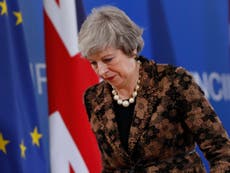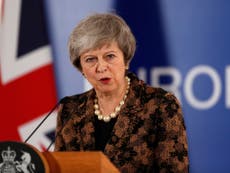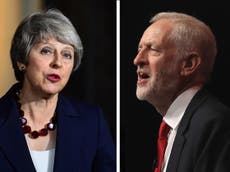Don’t listen to the establishment – Jeremy Corbyn’s Brexit parliamentary tactics are spot on
A mistimed vote of no confidence in the government could strengthen Tory resolve and end Labour’s hopes for a general election. His chance to land the knockout blow will come after May’s Brexit deal is voted down
Jeremy Corbyn is no stranger to criticism of his political judgement. Leading up to the 2017 general election he was derided as someone who would hand a three-figure majority to Theresa May. He didn’t. His approach to PMQs is often blasted for lacking forensic detail and a common thread. Yet, his PMQs videos get a larger viewing on social media than Theresa May’s twice over. And now he is being criticised for his response to the Brexit chaos that is engulfing our country. But it’s far too early for that.
Following last week’s failed European Research Group plot to oust Theresa May, Jeremy’s reluctance to rush into holding a vote of no confidence in the government is looking all the savvier. Whilst the motion of no confidence tabled in the prime minister might have caused embarrassment to the PM if it went ahead, Corbyn’s chance to land the knockout blow will be soon after the meaningful vote takes place. Have no doubt that Jeremy will circle that date in his calendar with a large red pen.
Since she survived to live another day, the prime minister has been back in Brussels, seeking concessions to appease her loudly disgruntled backbenchers. Despite heated discussions, the EU leaders have given a resounding “non” to the prospect of any renegotiations. This leaves Jeremy Corbyn as the man of the hour.
With the Conservatives hogging the limelight over the past few weeks, Labour has been relatively quiet – sometimes to the frustration of supporters. But work is being undertaken. Planning and plotting has begun to accelerate behind the scenes, as evidenced by recent proceedings in parliament.
On Monday, the PM, as she often does, bought herself some time by declaring a timeframe for a meaningful vote. It appears this move caused Jeremy to stop short of tabling a vote of no confidence that could bring down her government, but did not stop him from putting forward a motion of no confidence in her. In truth, this move of political theatre is designed to help build momentum towards Corbyn’s ultimate goal and allow Labour an opportunity to place further pressure on the PM, whilst keeping a formal vote of no confidence in the government in reserve.
If, and when, Theresa May loses the meaningful vote on an unchanged deal, this will trigger a series of scenarios for Jeremy and his advisers to consider. By then, a vote of no confidence in the government could easily command the backing of the SNP, the Lib Dems and a smattering of Tories. Even the DUP light-heartedly refer in private to the fact that ever since Tom King’s days in the 1980s, it’s been Conservative secretaries of state, not Labour ones, who have caused them more sleepless nights.
A lost vote of confidence sometime in mid-January would bring the prospect of an early general election closer and Jeremy could finally find himself in a position to finish the job following 2017’s near miss.
For all the dismissiveness exhibited by his political opponents, Jeremy Corbyn would provide the best chance of a renegotiation of the current deal. A wholly new government, supported by a new look parliament would be a good enough reason for Jean-Claude Juncker, Michel Barnier and co to get back around the negotiating table. Labour would be well within its rights to refuse to implement a flagship policy of an outgoing Conservative government.
The conundrum, of course, for the Labour leader is that a mistimed vote of no confidence in the government could strengthen Conservative Party resolve and end his hopes for a general election – just like it did for those vying for the Tory leadership.
If that was to happen, Labour could then be in a position to throw its weight behind a second referendum. Despite Theresa May’s protestations, if the stars align, there could be a majority in parliament for this proposal.
The calculation Corbyn will have to make is whether he is likely to gain support from Remain-voting Tory supporters that will offset the disgruntled Leave-voting Labour supporters. Regardless, many moderates will hope that a second referendum will unify, rather than divide, and provide us with a lasting solution once and for all.
As is often the case with Brexit, nothing is black and white. But, with May securing another 12 months as Tory leader and EU leaders refusing to budge on negotiations, the nation is waiting with bated breath for Jeremy’s next move.
Kevin Craig is the chief executive of communications agency PLMR. He was also one of the largest personal donors to Labour during the 2017 general election






Join our commenting forum
Join thought-provoking conversations, follow other Independent readers and see their replies